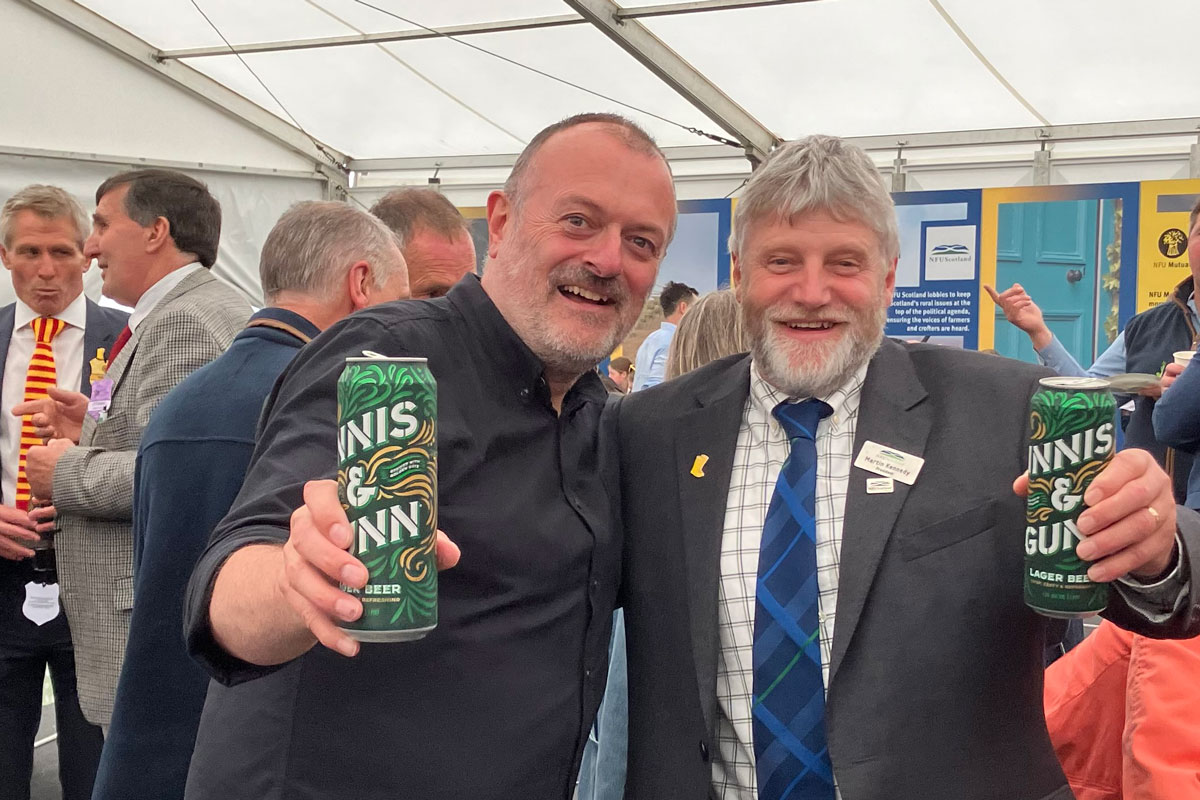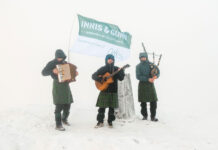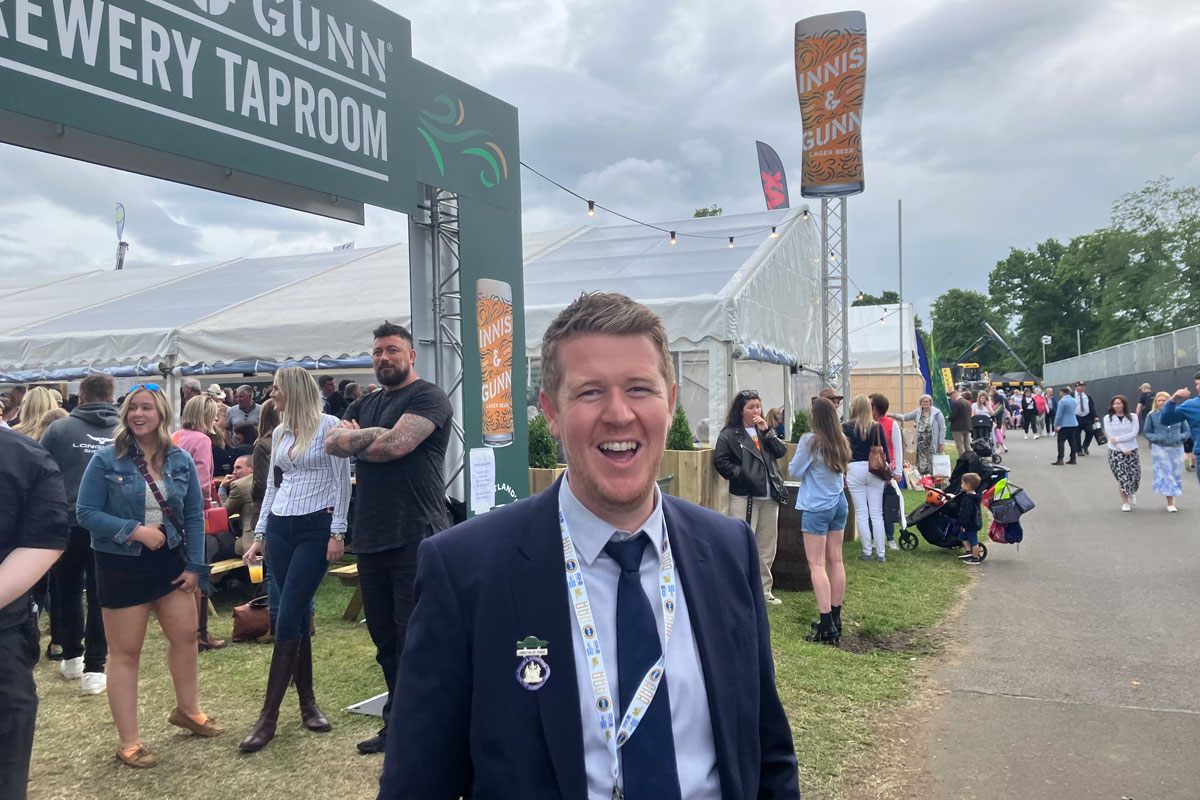
By Gordon Davidson
For four days every June, the Royal Highland Showground at Ingliston, just outside Edinburgh, becomes Scotland’s sixth biggest population centre, with around 55,000 people on site on each of those days.
The core audience of the Royal Highland Show is rural – farmers, livestock exhibitors, machinery dealers, equestrian enthusiasts, and vets – but thanks to its ever-growing offer of food, drink and entertainment, the event has gradually become a huge urban family attraction.
As the site’s Director of Venue Mark Currie puts it, when the Ingliston gates open, it’s as if the entire population of Paisley has simultaneously decided to get out of their houses and go for a drink.
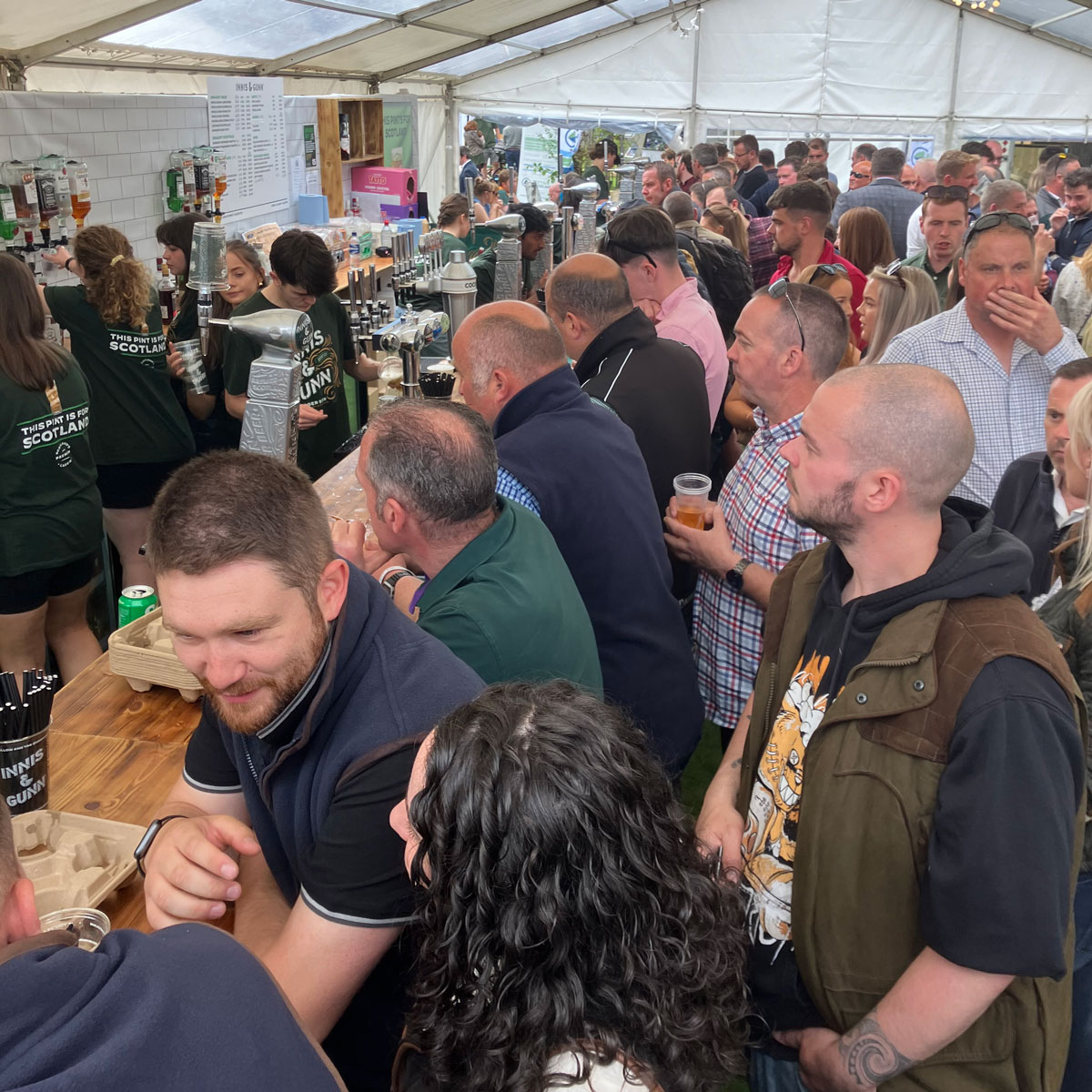
To deal with that demand, this year’s Show had 23 separately licensed bars, run by 10 bar operators, with around 1000 barstaff, 360 stewards, and a fearsome logistics operation to back them up.
“Getting a pint of Heineken or Amstel just didn’t make any sense”
Given the event’s roots in Scottish farming, its food and drink emphasis is firmly on home-produced goods – so when Mark joined the Show, and found Heineken in as the beer supplier of choice, it was clear a change was coming.
“We sat down with Heineken and realised that what we offer is the best of Scotland and, particularly if you are international visitor coming here, hearing all about how good Scottish food and drink is, then getting a pint of Heineken or Amstel just didn’t make any sense,” he said.
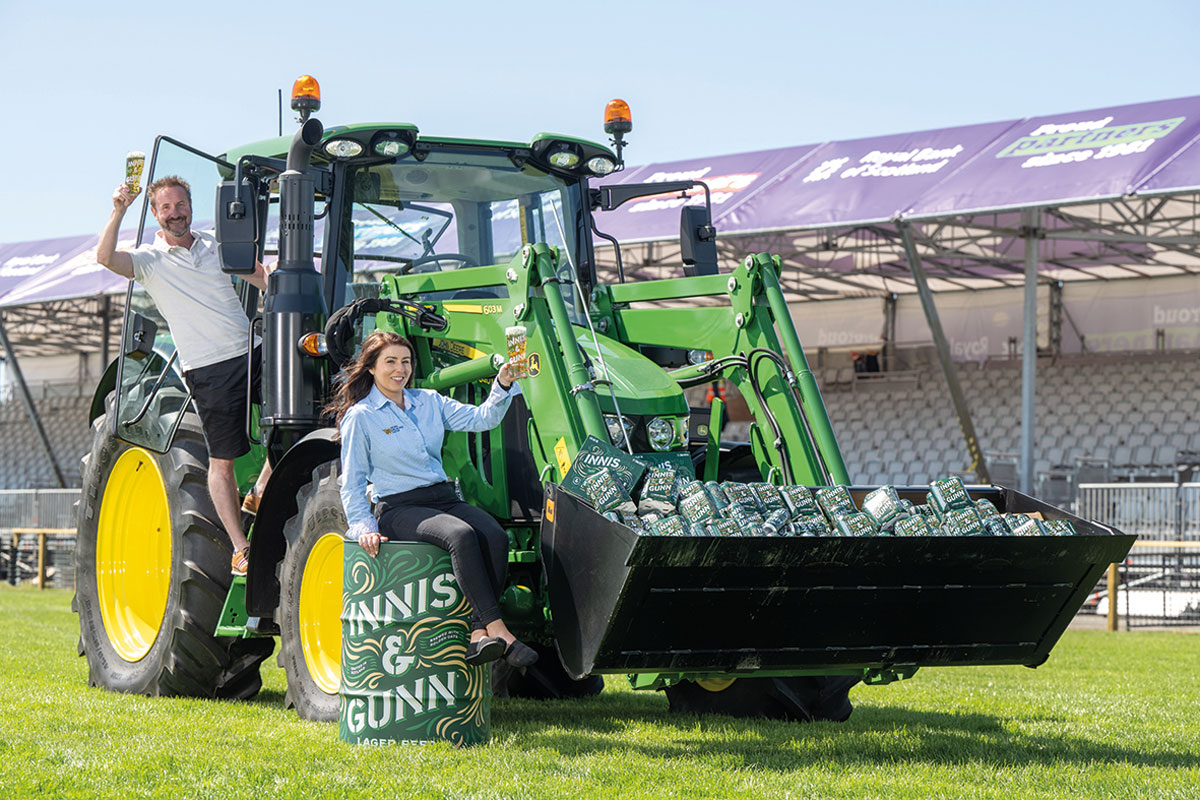
“So then we sat down with Dougal Sharp and the guys from Innis & Gunn – and within 15 minutes, I think, we knew we would have deal, because there was just a natural connection between what they’d been doing and what we were doing.
“Scottish beer made with Scottish ingredients, made in Scotland.”
Mark said the Show – which is actually the public-facing activity of the Royal Highland and Agricultural Society Scotland charity – has since enjoyed a great relationship with Innis & Gunn, which came on as primary beer supplier in 2022 to a warm welcome from both the farmers who understood its local provenance, and general punters, who just like a good pint.
Operators that successfully tender to put bars onsite must book under that overhead agreement, setting up their accounts through C&C.
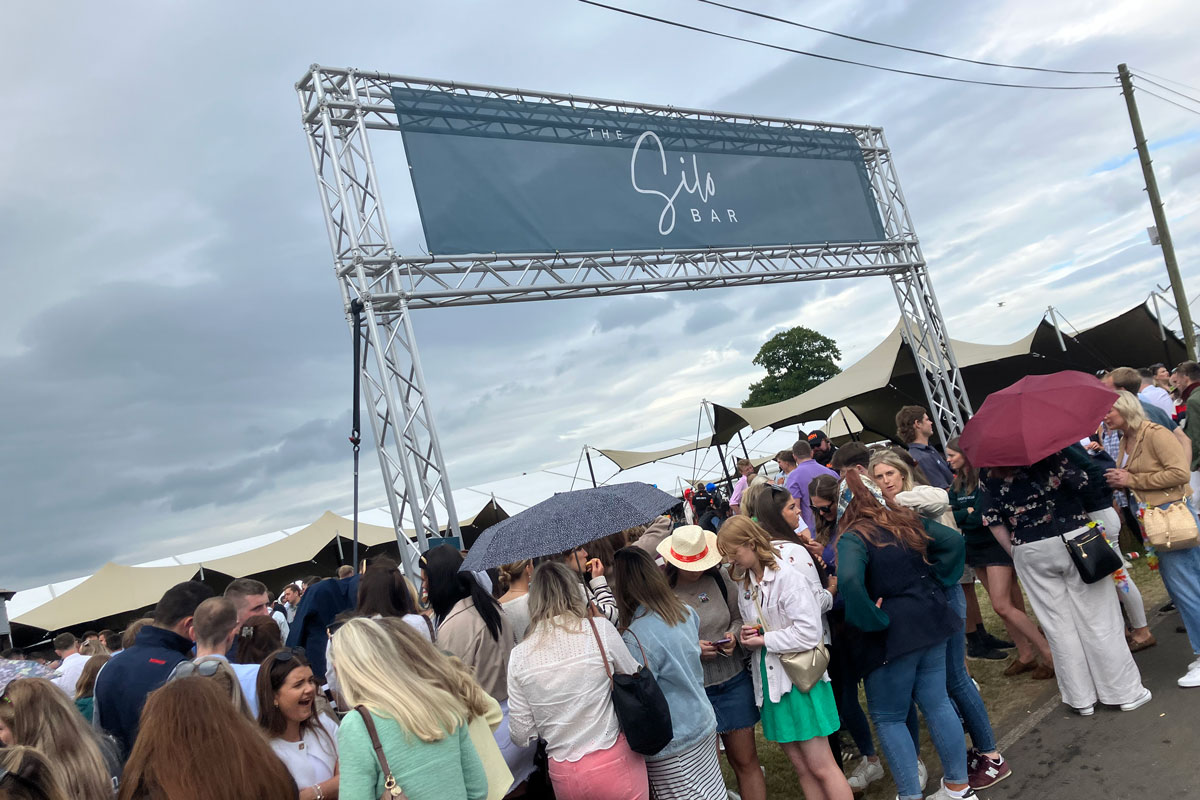
“As event organisers, we’ve got a say in the product choices behind the bar, and pricing,” explained Mark.
“One thing Dougal said to me at the outset was that we really needed to protect the brand and protect the show at the same time. And that meant we can’t be having £9 pints like you might get at Cheltenham or events like that.”
Mark came to the RHASS from DF Concerts, where he had been involved in the logistics of the famed T in the Park music festival, which gave him the transferable skill of getting tens of thousands of people into a field; offering them food, drink and facilities; then getting them back out again, safely and at a profit.
But he was clear that the big music festival model of only dealing with one bar operator, who would then ring the site with 30 metre bars and barriered queueing systems, was never an option for the Highland’s upmarket offer.
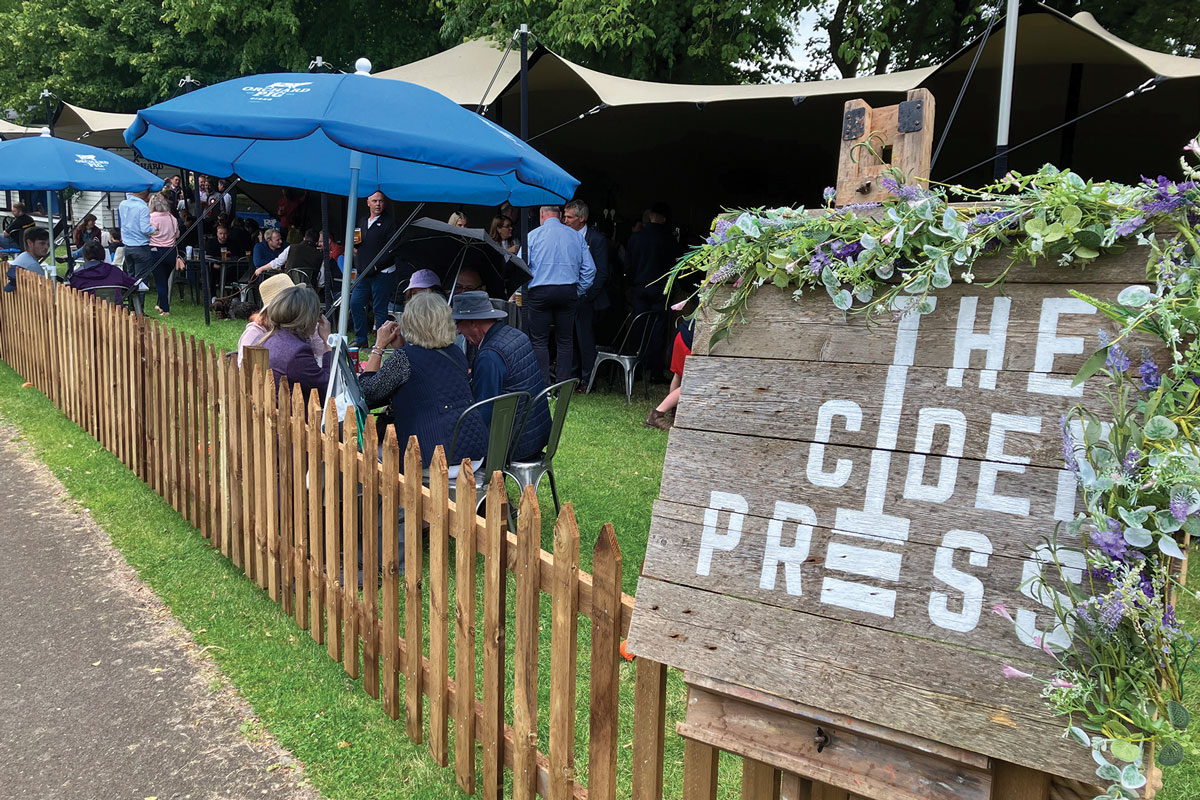
“What we are trying to do here is make every bar unique – a destination,” he said, as we chatted in the new Innis & Gunn Taproom. “This one, its full of agri-guys catching up, but The Silo down there, with a big circular grain silo as its bar, that’s designed for a younger audience, so its busier and its jumping.
“We are getting away from drinking dens and bulk bars – we want good experiences”
“We are getting away from drinking dens and bulk bars – we want good experiences, some with good food options, and we want good dwell time, people sitting listening to live music, having a few pints.
“We are trying to soften some of the behaviours that maybe we had in the past, and this is one of the ways to do it. Differentiate the bars, spread them out across the site, design them as places where all our visitors can feel comfortable.”
With regard to how those different bars are tendered out, now and in the future, Mark offered to be ‘totally transparent’: “I think the bars and catering here have been operated naively for a time,” he admits.
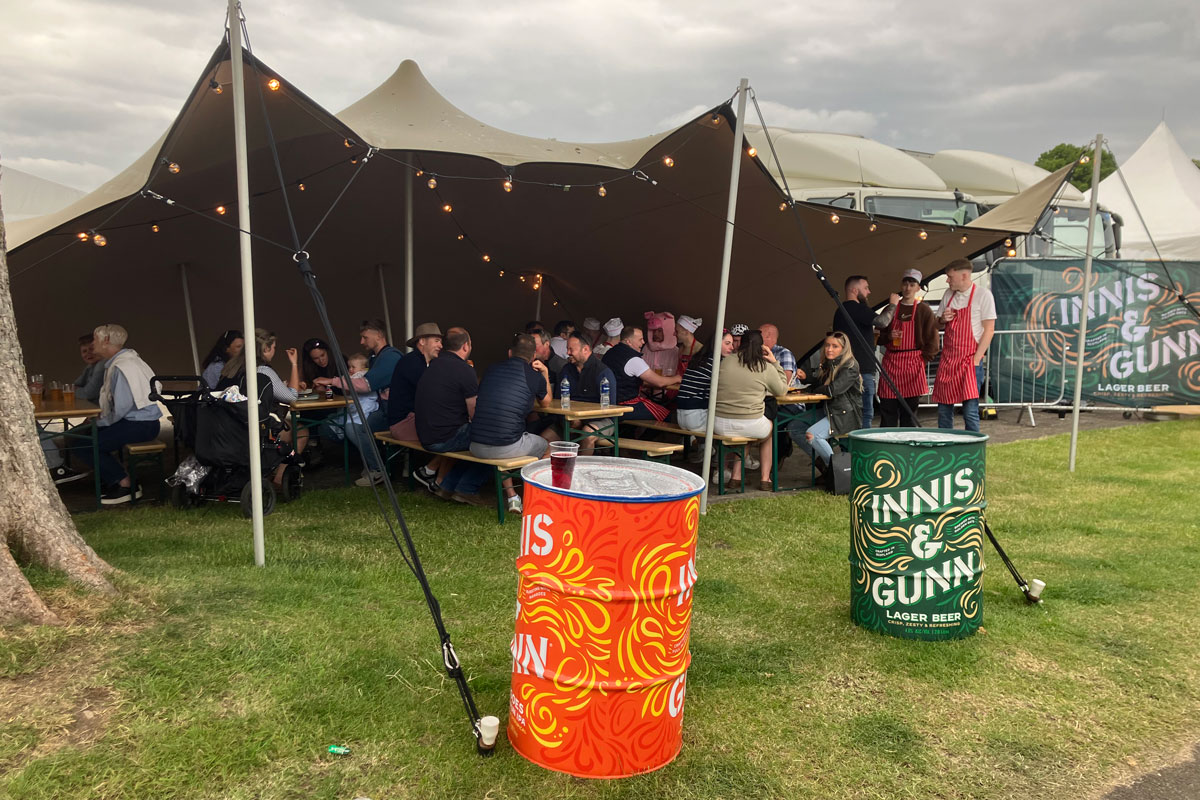
“The Show has grown, the bars have grown with it, and there is more commercial potential for us, RHASS as the organiser, and that is one of the things we are exploring.
“We reviewed our traditional low-risk model for bar rental, where we would offer the space in return for a fixed fee. While this approach minimized our risk, it also limited the potential for greater rewards from really successful shows.
“So this year we’ve encouraged a number of the bars onto our own till system – for the first time, I will know what most of the bars have taken, and that will allow us to tender more commercially.
“The bars have had a great run, the bar operators have had a great run, but our costs have gone up by 30 or 40% and we need a fairer share of the takings to match that.”
Mark concluded: “For me, there is no risk at The Royal Highland Show. We sell out the four days pretty much, and it’s an audience that admires the taste of a good lager, and they come here to do that and enjoy that.”
